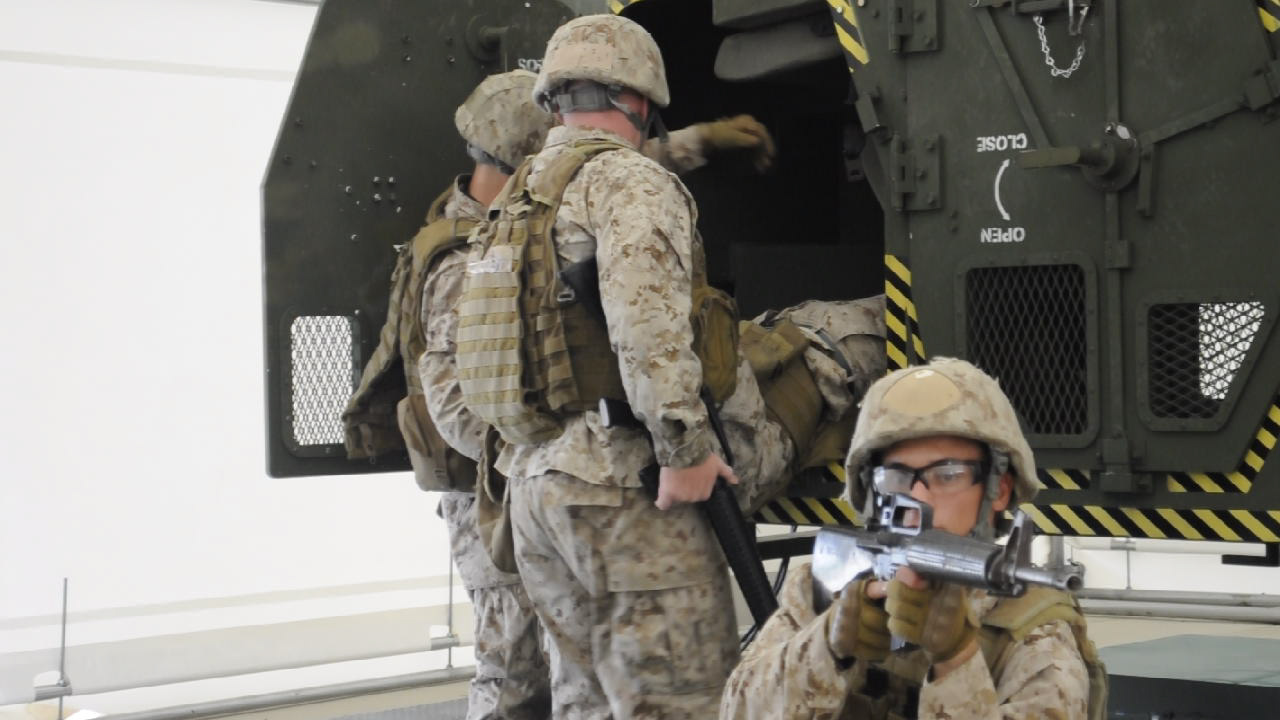Covering the military means entering a new world – and it’s not easy. Not only are you trying to keep ranks and titles straight as you wade through the alphabet soup, but everyone keeps calling you “Ma’am” or “Sir.”
It can be overwhelming for new reporters.
But before you know it, you start speaking in acronyms and learn to how to handle military base security, and it turns out that covering the military can be a gold mine of story ideas that many other journalists never find.
Here’s the inside scoop on what public affairs officers wish reporters knew, and how to make your life easier. Use these tips, and you’ll get comfortable with the public affairs officers and avoid making rookie mistakes while you get comfortable.
1) Don’t call the Army with a question about the Marines.
You might think this is a no brainer, but some public affairs officers at Quantico Marine base beg to differ.
“The Marine Corps won’t speak for the Army or for all of DoD, and a company commander can’t speak for an entire Marine Expeditionary Force,” they wrote in email. “Ask questions at the appropriate level, and to the appropriate service”
Different branches of the military are, in essence, different government organizations. You wouldn’t call Federal Emergency Management Administration about customs and border information, even though both of those programs are under the Department of Homeland Security.
2) No one will mind if don’t speak acronym.
Everyone in Washington speaks in his own language, and part of the challenge for any journalist in this town is deciphering jargon for public consumption. When it comes to the military, everything is short for something else, from MAGTF to AVCATT. Do your research because, as Army Lt. Col. Peggy Kageleiry said, “You need to know the difference between operations and intelligence and logistics” and other basics. By the way, MAGTF is Marine Air-Ground Task Force and AVCATT is Aviation Combined Arms Tactical Trainer Training
But once you move beyond that, feel free to stop someone and ask or make a notation in your notebook for later if letters don’t seem to correspond to anything in the real world. And if you do get discombobulated, ask the public affairs officer for help. That’s what he or she is there for.
3) Record EVERYTHING (with permission, of course).
Chances are you won’t catch everything the first time around, no matter how furiously you scribble. With the alphabet soup flying and every other word coming out shortened, it can be hard to figure out if the people you are interviewing are still speaking English. Aside from helping ensure that you are accurate, recording gives you the chance to go back and listen to an interview again and catch some of the nuances you missed the first time.
Plus, those you interview will welcome your recorder as a signal that accuracy is a priority, and often they will respect you more for it.
4) Talk to a public affairs officer, not at them.
The public affairs officer knows your job, and may be one of the few people who understands exactly what you are doing and why.
“You’re asking the public affairs officer who understands that the interview is good for both the military and the news organization,” said Kageleiry.
If you give the public affairs officer as much information about your story as possible up front, then the public affairs officer has a better chance of getting you to the right person to answer your questions.
After you give the PAO information, try to listen. PAOs know more about what is new in their unit than you do, and if you listen to them you just might find a story you didn’t expect. The more respect you give them, the more they give you, and the more good stories will fall into your lap.
5) We all need more hours in the day.
When your deadline is 5 p.m. and the PAO has to look up information from six or seven different offices, things rarely work out in your favor. So plan ahead of time. And when you think you’ve planned enough time, plan some more. It can take weeks to get information from the Department of Defense or military branches.
“Everybody here only has a piece of the puzzle,” Kageleiry said. “It’s not that they’re stonewalling, it’s just that everyone has a responsibility and people can’t speak out of turn.”
The Marines at Quantico counseled patience.
“While we understand media deadlines, commanders have obligations to their parent service and cannot always meet a reporter’s deadline. Trying to pressure the command is not conducive to a positive working relationship.”
And if you don’t get what you need, just keep asking. It might just show up when you least expect it.

